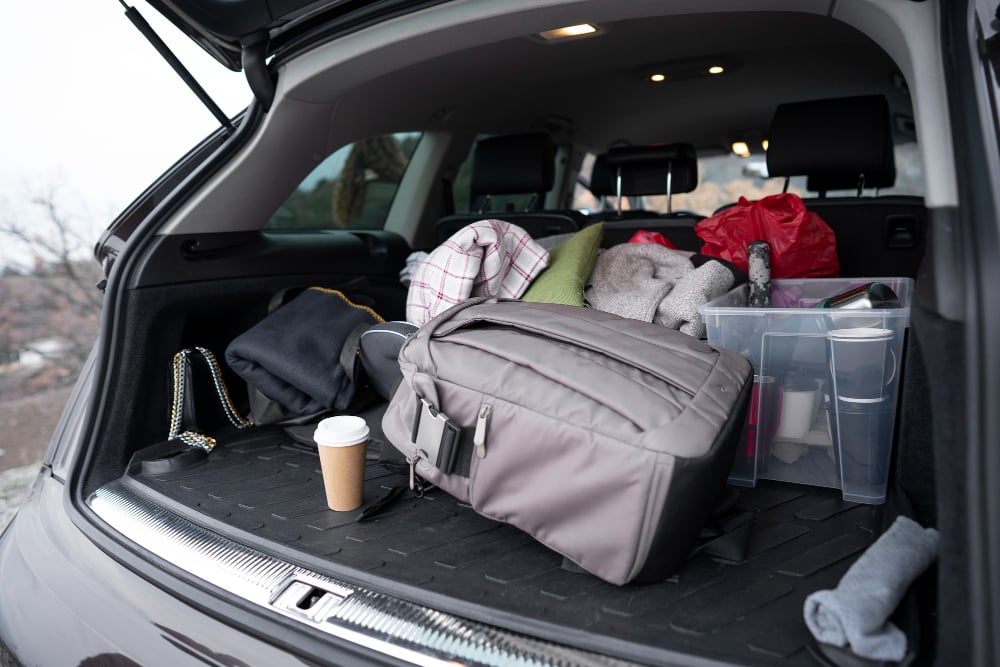Discover essential tips for organizing an unforgettable journey across America.

A U.S. cross-country road trip is the ultimate adventure, offering the freedom to explore diverse landscapes, vibrant cities, and hidden gems along the way. Planning such a trip requires thoughtful preparation to ensure every mile is memorable and stress-free. From mapping your route to packing the right gear, a little foresight goes a long way. Follow these key steps to plan for an epic road trip that will leave you with stories to tell for a lifetime.
1. Mapping your route ensures you hit must-see destinations along the way.

Start your cross-country road trip by identifying key destinations and landmarks you want to visit. Use a combination of GPS apps and physical maps to chart your journey, considering scenic byways like Route 66 or the Blue Ridge Parkway. Factor in time for detours, rest stops, and exploration of off-the-beaten-path attractions. Research road conditions and construction updates to avoid delays. A well-planned route ensures you maximize your trip and cover all your bucket-list stops.
2. Choosing the right vehicle makes your journey comfortable and reliable.

Selecting the right vehicle for a cross-country road trip is critical. Consider factors like fuel efficiency, storage space, and comfort for long hours on the road. A reliable SUV or van is a great choice for groups, while solo travelers might prefer a compact car. Ensure your vehicle is in top condition with a pre-trip inspection, checking tires, brakes, and fluids. A dependable vehicle reduces stress and ensures you enjoy the journey to the fullest.
3. Budgeting wisely keeps your trip enjoyable and stress-free.

A cross-country road trip can get expensive without a clear budget. Start by estimating costs for fuel, accommodations, food, and activities. Use apps to track gas prices and look for deals on lodging through platforms like Airbnb or booking sites. Set aside extra funds for emergencies or unexpected expenses. Plan meals by packing snacks and prepping food to save money. Sticking to a budget allows you to focus on enjoying your adventure without financial worries.
4. Packing strategically ensures you have everything you need without overloading.

Pack smart by prioritizing essentials like clothes, toiletries, and a first-aid kit. Include weather-appropriate gear, as temperatures can vary greatly across the country. Don’t forget tech necessities like chargers, power banks, and a GPS device. Keep snacks and water easily accessible for long stretches between stops. Use space-saving packing techniques like rolling clothes or using vacuum bags. Packing efficiently ensures you’re prepared for every situation while leaving room for souvenirs from your journey.
5. Scheduling rest stops helps maintain energy and focus during the drive.

Driving long distances can be exhausting, so plan regular rest stops every 2-3 hours. Use these breaks to stretch, hydrate, and recharge mentally. Include scenic viewpoints, local diners, or small-town attractions in your itinerary to make the stops more enjoyable. If traveling with others, take turns driving to reduce fatigue. Prioritizing rest keeps you alert behind the wheel and ensures your road trip is both safe and enjoyable from start to finish.
6. Researching accommodations provides comfort and flexibility.

Finding the right accommodations for each leg of your journey is essential for a successful road trip. Research hotels, motels, or campgrounds in advance and book where necessary, especially in popular areas. Consider apps like HotelTonight for last-minute deals or find unique stays through Airbnb. If you’re on a budget, look into hostels or free campsites. Having a mix of planned stays and flexibility ensures you have a comfortable place to rest each night.
7. Planning for entertainment makes long drives more enjoyable.

Hours on the road can get monotonous, so plan entertainment to keep spirits high. Create playlists of your favorite music, download audiobooks or podcasts, and prepare road trip games for group fun. If you’re traveling with kids, pack coloring books, tablets, or toys to keep them engaged. Streaming services that allow offline downloads are great for downtime. Keeping the ride fun and engaging ensures the journey is just as memorable as the destinations.
8. Preparing for emergencies keeps your trip running smoothly.

A well-stocked emergency kit is essential for any road trip. Include items like jumper cables, a flashlight, extra batteries, a tire repair kit, and basic tools. Carry copies of important documents like your driver’s license, insurance, and roadside assistance information. Have a backup power bank for your phone and keep a printed list of emergency contacts. Being prepared for unforeseen issues ensures minor setbacks don’t derail your epic cross-country adventure.
9. Staying flexible allows for spontaneous adventures and less stress.

While planning is key, staying flexible is just as important for a successful road trip. Unexpected road closures, weather changes, or exciting detours might alter your plans, and that’s okay. Leave room in your schedule for spontaneous adventures like discovering a hidden hiking trail or exploring a charming small town. Embrace the unpredictable nature of the road, and you’ll create memories that make your journey truly epic and unforgettable.
10. Documenting your journey preserves memories for years to come.

Capture the essence of your cross-country adventure by documenting it along the way. Take photos at landmarks, record short videos of memorable moments, or jot down your thoughts in a travel journal. Sharing highlights on social media can keep friends and family updated on your progress. At the end of the trip, you’ll have a treasure trove of memories to relive and share, preserving the magic of your journey for years to come.
